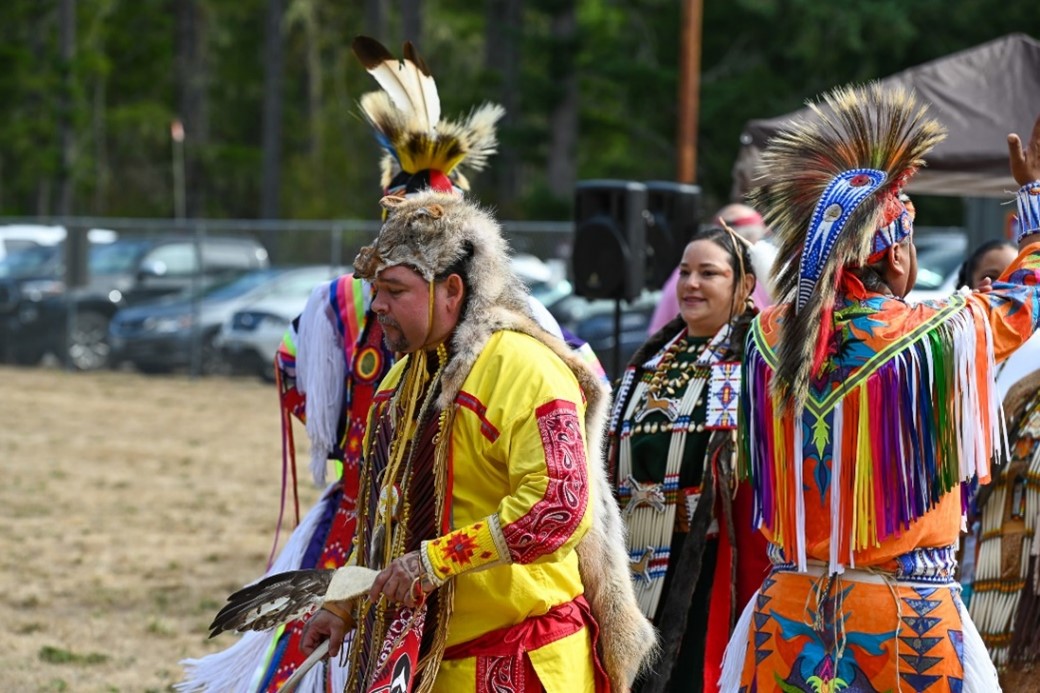The collaboration between the non-profit organization Unkitawa and the Washington State Department of Corrections (DOC) represents a crucial partnership that addresses the unique needs faced by indigenous individuals during and after incarceration. This alliance underscores the importance of cultural sensitivity and tailored support in the rehabilitation process. By integrating traditional values and practices, Unkitawa provides a culturally relevant and specific approach to reentry, which can be vital for successful reintegration into their communities. The word “Unkitawa” is the Lakota word meaning “ours,” “yours,” and “mine.” It embodies the concept that what belongs to each of us individually equally belongs to all living things.
Many Unkitawa mentors are formerly incarcerated individuals. Allowing formerly incarcerated individuals to return to prisons to provide mentorship is a progressive move that shows the significant power of peer mentorship and adopting change. These mentors share a common cultural background and have already navigated the journey of reentry while bringing helpful insight and empathy.
Formerly incarcerated mentors are not judged for their past and are seen as invaluable collaborators and partners. Their lived experience as an indigenous person who has been through the criminal justice system offers a unique form of support and understanding that can be pivotal in transforming lives.
“This is more than a job, more than a contract, this is my way of life. To serve our relatives and provide all we can for them is a blessing and an honor,” said Jeremy Garretson, Northern Arapaho, Reentry Program Director. “At Unkitawa, we truly live this traditional way of life, centered on ceremony. We are not random employees, but rather traditional relatives who’ve come together to make a difference in our communities. Our mission is to provide healing to our people through culture, art, and ceremony. And within this contract, we are working to do just that.”
Unkitawa plays an essential role in supporting incarcerated indigenous individuals by providing culturally significant services, including sweat lodge ceremonies (Inipi), beading and regalia making programs, drum circles and powwows. Each of these services (except for annual powwows) are conducted twice a month at each facility with the assistance from Unkitawa. These sweat lodge ceremonies offer a deeply spiritual experience that is rooted in indigenous traditions, serving as a means of purification, prayer, and reconnection with cultural roots. In addition to the regular ceremonies, the group organizes two extra sweat lodge ceremonies during the changing of the seasons, acknowledging and celebrating the deep connection between indigenous culture and nature during solstice and equinox.
“In DOC’s facilities we are providing space and an opportunity to promote healing and growth in our incarcerated relatives,” said Garretson. “By doing so, we are helping to rebuild traditional healthy families and communities. Everyone is capable of making a new choice and leading a new life. I mean, look at all of us on the Unkitawa Reentry Team, we are living proof of that. These incarcerated relatives deserve that opportunity too, and we here to help provide it.”
Each DOC prison facility holds an annual powwow, which stands as a significant event, developing a sense of community and cultural pride among incarcerated. These activities are not just religious or cultural practices, they are vital for the mental and spiritual well-being of the participants, providing a sense of continuity and belonging that is often lost in the prison environment.
Knowing the impact that the preservation of indigenous culture and religion within the prison system has on incarcerated individuals is the reason why Unkitawa spends so much time and effort to provide essential materials for traditional practices. There are twenty-two Native American groups, also known as hoops or circles, that all have unique needs that Unkitawa proudly provides guidance for.
One key contribution is supplying beads for beadwork, a deeply meaningful and therapeutic art form that allows incarcerated individuals to reconnect with their heritage and express themselves creatively.
Additional donations including sewing machines, cloth, and materials have helped build a regalia making program for the incarcerated to create traditional regalia to be worn during significant ceremonies and events such as powwows.
Unkitawa provides traditional drums, medicinal herbs and other ceremonial supplies, which are essential to spiritual and cultural practices. They also serve as a powerful symbol of indigenous identity and community. These contributions not only aid in cultural preservation but also offer immense psychological and emotional support, helping to maintain a sense of identity and community connection. This is especially important among those who may not have had an opportunity to connect to their culture prior to incarceration.
To learn more about Unkitawa or to see their calendar of events please visit: https://www.unkitawa.org

